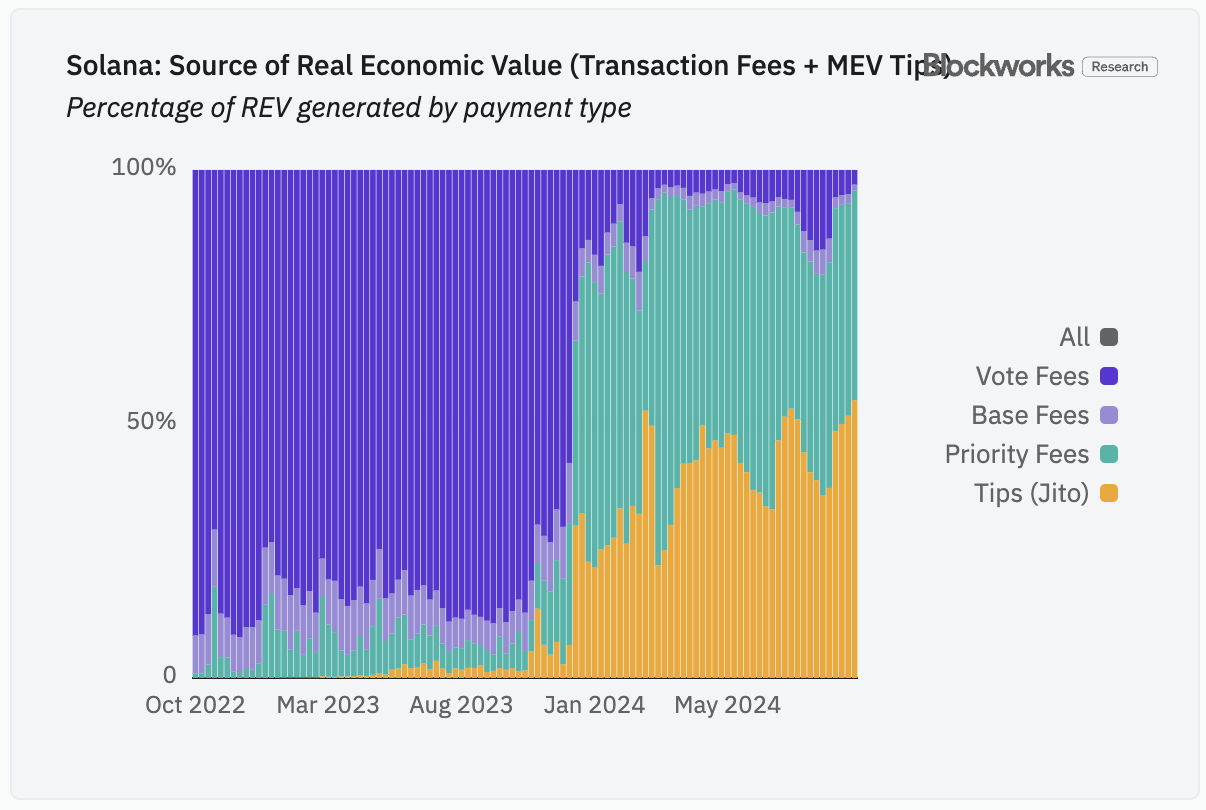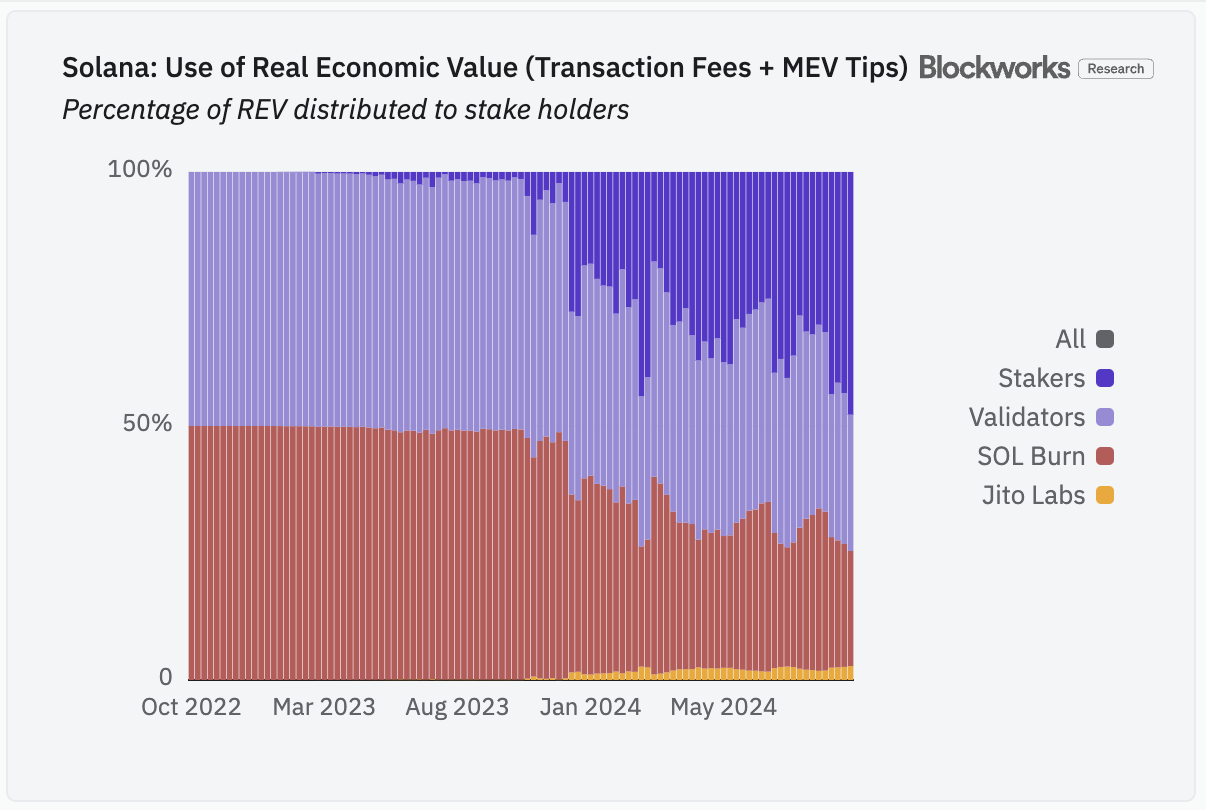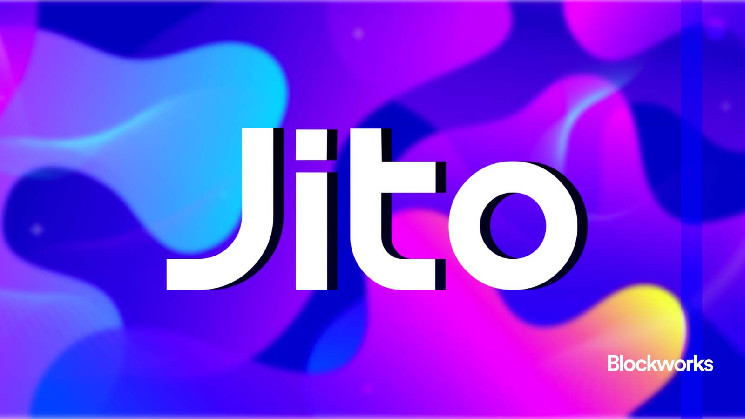This is a segment from the Lightspeed newsletter. To read full editions, subscribe.
Solana could be seeing a substantial change in who benefits from the blockchain being built.
A proposal from Jito’s DAO would send 3% of all maximal extractible value (MEV) tips collected by the protocol to the DAO treasury and to TipRouter, an in-house program developed for Jito’s forthcoming restaking platform.
Jito Labs has also pledged to reduce its own tip share from 5% to 3%, meaning 6% of all Jito MEV tips would be taxed under the new program, up from 5% currently. The proposal estimates the fee switch would generate $22.8 million in annual revenue for the recently-formed Jito DAO.
MEV refers to the potential profit generated by reordering transactions within blockchain blocks. Jito created a validator client, which is the software validators use to connect to the blockchain, in which “MEV searchers” bid to have validators process their profitable sequence of transactions first. Searchers can add tips to sweeten the deal, and these tips have proven to be quite lucrative for validators, especially when there is more interest in trading on Solana.
From March through September of this year, Jito MEV tips generated roughly $232 million in economic value, per Blockworks Research. Solana processed $20 million in Jito tips last week alone amid a memecoin-driven trading surge. MEV tips accounted for 54% of Solana’s real economic value (REV), a Blockworks Research metric that estimates how much income blockchains are generating.

The Jito DAO proposal would represent a shake up in how one of the Solana blockchain’s biggest income generators divvies up its spoils. This chart tells an interesting story in that regard:

As you can see, SOL stakers’ income from Solana has slowly been growing in recent months, at the expense of validators and SOL that is burnt, or removed from circulation to slow down inflation.
Jito Labs’ 5% of MEV tips currently earns it around 2.5% of Solana’s REV. With the pending proposal, less REV would go to Labs and some would go to the DAO. Whether you think stakers or validators should be receiving more REV, or if Jito deserves a bigger share of the Solana network’s economic value, is all a question of values (for what it’s worth, I argue validators should be better rewarded in this podcast episode with Dan Smith from Blockworks Research).
Another recent shift in Solana stakeholder revenue came from Solana Improvement Document (SIMD)-0096, which would send priority fees entirely to validators rather than burning half.
Most of the new tip structure would go to Jito’s DAO, but 0.15% would also go to TipRouter, a Jito-conceived protocol which will “programmatically” distribute MEV tips. The TipRouter network will run as a node consensus network (NCN) on Jito Restaking.
In a sense, TipRouter can be thought of like EigenDA on EigenLayer, as an early restaking service built by the restaking platform.
This is all subject to a vote from Jito governance. But since the protocol is basically asking Jito DAO whether or not it wants to receive an estimated $22.8 million annually, I’d venture that the proposal has a pretty good chance of passing.
 blockworks.co
blockworks.co
